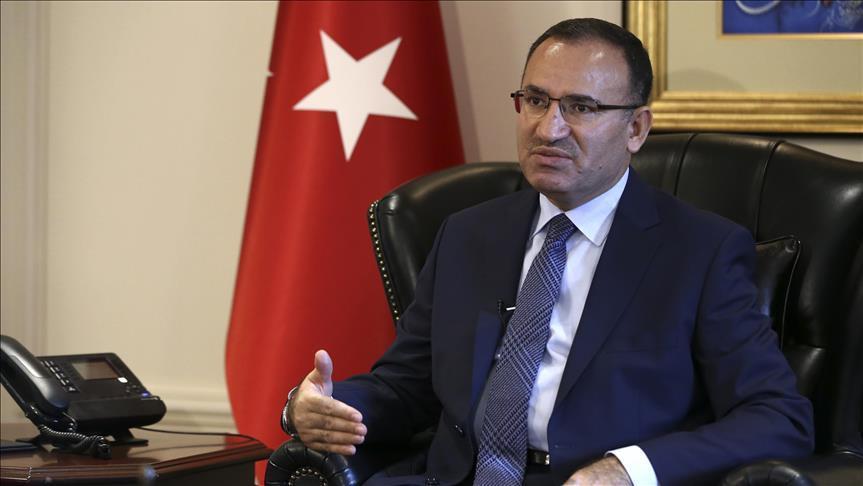Turkish deputy PM slams Trump’s threat to cut aid over Jerusalem vote
ANKARA

Turkish Deputy Prime Minister Bekir Bozdağ on Dec. 21 slammed U.S. President Donald Trump’s threat to cut aid to countries which vote in favor of a U.N. resolution on Jerusalem.
“They take hundreds of millions of dollars and even billions of dollars, and then they vote against us. Well, we’re watching those votes. Let them vote against us. We’ll save a lot. We don’t care,” Trump said on Dec. 20 at the White House.
“With this statement, U.S. President Trump’s threat to countries that vote against the U.S. on Jerusalem is not acceptable. The U.S. must know that it cannot instruct sovereign countries with pressure and threats as it wants. Tomorrow’s vote is an opportunity for this,” Bozdağ said on his Twitter account.
He added that none of the sovereign and independent states would surrender to the U.S. president’s threat and pressure.
“Turkey will maintain its principled and rightful stance, and will once again defend the Palestinian cause and the status of Jerusalem with the vote it will cast tomorrow,” he said.
“Turkey and the Turkish nation do not change decisions with threats or pressure,” he said.
Less than two weeks after Washington moved to recognize Jerusalem as Israel’s capital and began the process to move its embassy there from Tel Aviv - the city where all other nations house their main diplomatic facilities in Israel - the U.S. vetoed a U.N. Security Council resolution that rejected the establishment of diplomatic facilities in the contested city of Jerusalem.
All 14 other Security Council members voted in favor of the Egyptian-sponsored resolution before it was nixed by the U.S. The council episode could signal a lopsided General Assembly vote should member states choose to ignore Trump’s warning.
The full 193-member U.N. General Assembly will meet for a rare emergency special session regarding Trump’s Dec. 6 decision. Unlike at the Security Council, the U.S. has no veto power in the assembly.
Jerusalem’s status has long been considered a final issue to be determined in the Israeli-Palestinian peace negotiations and Trump’s decision is widely seen as undercutting that long-standing understanding.
















